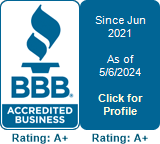A sober companion offers tailored support and guidance as individuals navigate their daily lives after rehab or as part of at-home treatment for addiction. They work one-on-one with participants, providing necessary encouragement and assistance as they engage with routines, responsibilities, and relationships that might otherwise present challenges to their sobriety.
Sober companions also identify and mitigate potential triggers in a participant’s environment, provide coaching through moments of high stress or anxiety, and offer immediate conflict resolution strategies during interpersonal challenges.
The daily assistance provided by a sober companion can include a range of supportive tasks designed to foster a sustainable sober lifestyle. They can join participants on errands, meetings, or social gatherings to ensure a supportive presence that proactively redirects the urge to drink or use. They may also:
- Accompany participants in workplace environments, fostering confidence as they resume professional responsibilities.
- Provide companionship during social events, offering a discreet layer of accountability.
- Guide participants in the development of regular exercise and nutrition routines that improve physical health and well-being.











